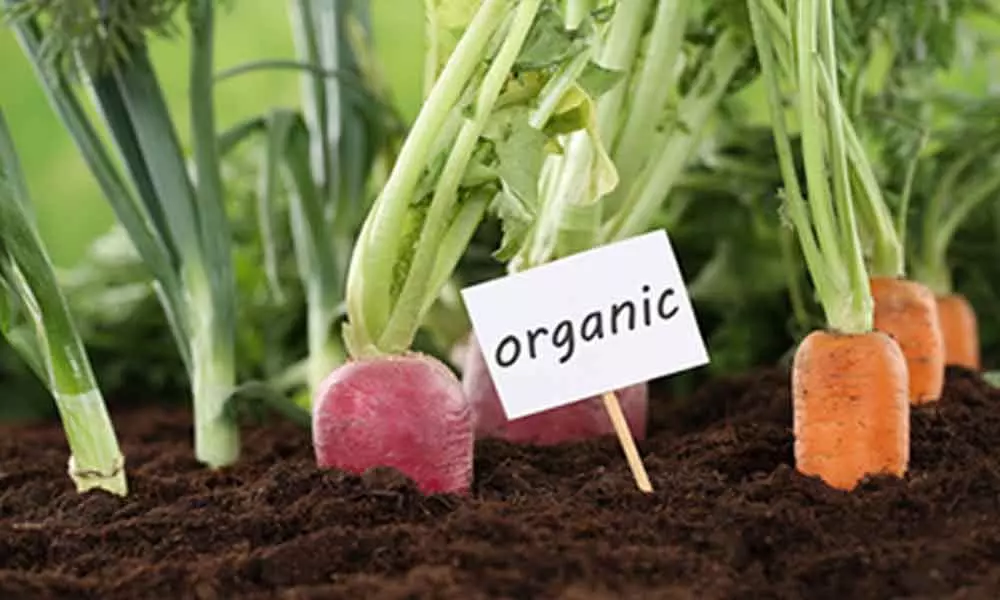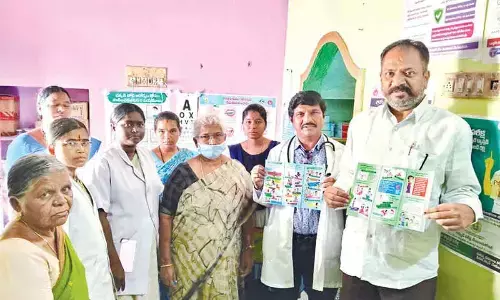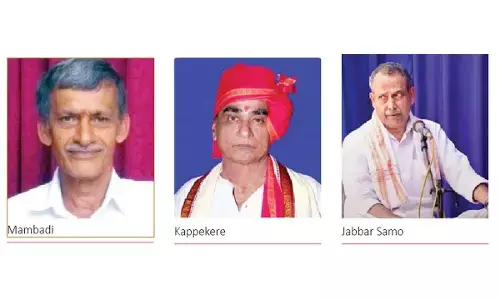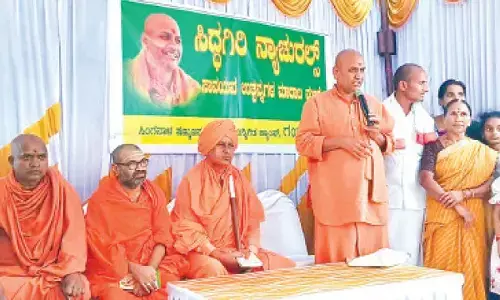Centre should boost organic farming in a big way

Expressing concern over the meagre share of India in the global organic trade despite having the highest number of organic farmers and being the 9th largest area in the world under organic farming, a Parliamentary panel has made several far-reaching recommendations to boost organic exports from the country and to ensure remunerative prices to farmers.
Expressing concern over the meagre share of India in the global organic trade despite having the highest number of organic farmers and being the 9th largest area in the world under organic farming, a Parliamentary panel has made several far-reaching recommendations to boost organic exports from the country and to ensure remunerative prices to farmers.
This has largely gone unnoticed as usual. The 31-member Department Related Standing Committee on Commerce headed by Rajya Sabha member V Vijayasai Reddy has presented its report on 'Export of Organic Products: Challenges and Opportunities' to Rajya Sabha.
The committee examined the issue at length in seven meetings since August last year and held discussions with stakeholders including senior officials of the Department of Commerce, Ministries of Agriculture & Farmers' Welfare, Food Processing Industries and Textiles, State governments, organic farmers, agencies involved in research, trade and export bodies etc.
The panel also visited Sikkim, the first organic State in the world. Why is it necessary to focus on the issue? There are several factors hindering the growth of organic farming in the country. The country cannot go on consuming pesticide-ridden produce forever.
As time rolls on, to increase the fertility of the soil and to secure higher yields, farmers keep pumping in more and more pesticides. But, it is not easy to increase organic farming multi-fold without looking into the problems like small size landholdings, high cost of inputs like bio-fertilizers, bio-pesticides and organic manure, weak market linkages, lack of awareness, inadequate and costly certification, poor infrastructure, negative perception about quality of organic exports from the country, lack of access to production technologies, low capacities and skills, absence of integrated policy support etc.
Referring to the huge potential for organic exports from the country, the committee strongly recommended setting up of demarcated Organic Production Zones (OPZ) with the required processing facilities and other necessary infrastructure to boost production of value-added organic products to increase exports exponentially since value-added organic products fetch a higher premium in global market.
Effective market linkages are never properly established in the country despite the Centre's efforts to establish e-marketing facilities. Our farmers are still depending on middlemen infested and broker-dominated market yards which aim to cheat the farmers more rather than helping them in getting proper prices for their produce.
Several market impediments have also to be removed before exporters increase the volumes to the benefit of the farmers and the country. North East has the potential to emerge as the organic hub of the country.
As the panel has suggested, creation of robust value chain and financial support for organic farmers in the region is necessary.
The country lacks comprehensive and inclusive policy framework to enable efforts for expansion of organic farming in the country and for addressing infrastructure deficit related to organic farming and also for evolving uniform standards across the country.
A certifying agency (or agencies) is the need of the hour. Such are the challenges ahead of the country if it is really interested in organic farming. Will the recommendations of the panel make any difference now?











